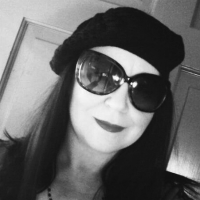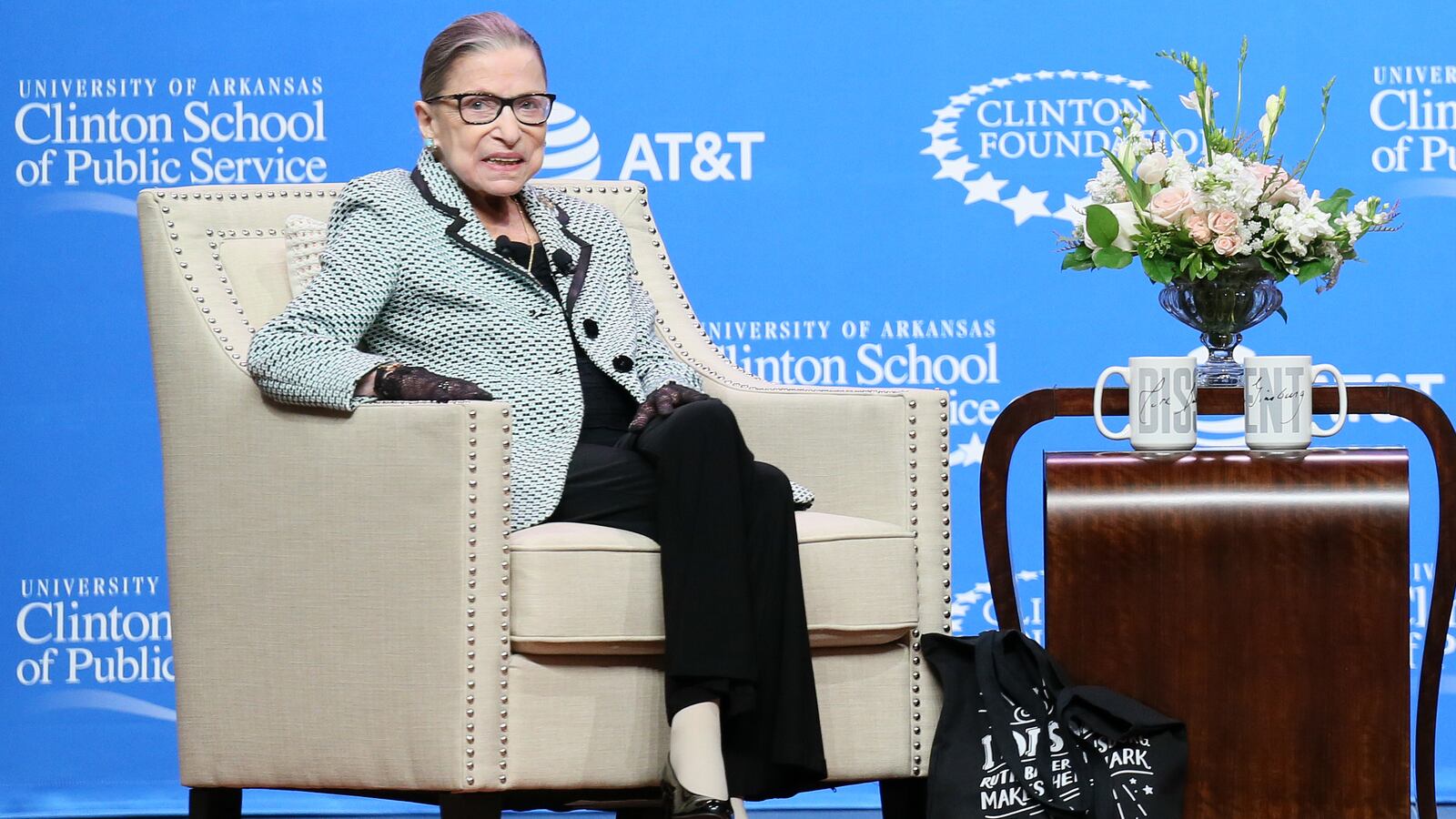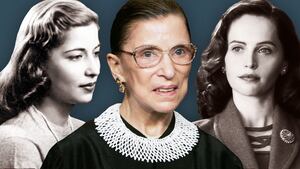NORTH LITTLE ROCK, Arkansas—If anyone ever doubted that Supreme Court Justice Ruth Bader Ginsburg was a rock star, that uncertainty was completely erased Tuesday night.
Ginsburg completed a three-week course of radiation treatment in New York City for a cancerous tumor on her pancreas at the end of August. Less than three weeks later, she packed Verizon Arena with more than 15,000 people who stood in 90-degree heat for several hours to hear her speak. Such large crowds in Arkansas are usually reserved only for musical acts like Fleetwood Mac and Paul McCartney.
Even NPR’s Nina Totenberg, who conducted an hour-long interview with Ginsburg for the audience, said, “Justice Ginsburg and I maybe have never been in front of a crowd this large.”
From little girls dressed in black robes and white collars to middle-aged women wearing “RBG” T-shirts, the crowd went bonkers for the 86-year-old Ginsburg.
Ginsburg was invited to speak at the Clinton Foundation and Clinton School of Public Service’s Frank and Kula Kumpuris Distinguished Lecture series. When the event was announced in early July, 12,000 tickets, which were free, were reserved in less than 24 hours. The demand was so great to see the “Notorious RBG” that the event was moved from a modest auditorium in the city to the vast arena across the river from the William J. Clinton Presidential Center.
A rock concert vibe radiated throughout the night. The letters “RBG” flashed on a mammoth screen and a video showed Ginsburg’s swearing-in ceremony before the surprise entrance of former President Bill Clinton.
Clinton, who the crowd didn’t know would be appearing, nominated Ginsburg for the Supreme Court in 1993, only the second woman to sit on the bench. Former Justice Sandra Day O’Connor, appointed by President Ronald Reagan, was the first in 1981.
Although Clinton now lives in New York, he still has many fans in Arkansas, a staunch red state that President Donald Trump carried with 61 percent of the vote in 2016 against Hillary Clinton.
“We love you, Bill,” one woman yelled.
“We miss you,” another person shouted.
Clinton recalled nominating Ginsburg, saying that when he met her in 1993 he was struck that she was “righteous and warm-hearted” and “brilliant.” But as that initial conversation continued on a Sunday afternoon at the White House, Clinton said at one point the meeting was no longer about nominating a Supreme Court justice.
“I was just a guy talking to someone I really liked,” Clinton said.
He acknowledged that when he nominated Ginsburg he had no idea she would become a pop culture icon with her likeness on mugs and tote bags and skits about her on “Saturday Night Live.”

“You can become resentful of such,” he joked before Ginsburg approached the stage. “All of us hope she will stay on that court forever.”
Ginsburg, who needed assistance up the stage’s steps, rocked a pair of black lace gloves and put both of her hands up to persuade the crowd to sit down during a standing ovation with claps, cheers and whistles. Two mugs—one with “Diss” and the other with “Ent”—sat on a table that separated Ginsburg and Totenberg.

Totenberg asked Ginsburg a series of questions that traced the justice’s life story, from growing up in Brooklyn to caring for her husband during his cancer battle while she attended law school, to her path as a feminist legend and her close friendship with the late Justice Antonin Scalia. Ginsburg also talked about her legal work in the 1970s, especially against gender discrimination and women’s rights.
The NPR commentator also didn’t shy away from Ginsburg’s health battles. In 1999, Ginsburg underwent colon cancer surgery. In 2009, she battled early pancreatic cancer. Late last year, she had surgery to remove cancerous nodules from her left lung.
“Where are we here?” Totenberg asked, considering Ginsburg’s recent cancer treatment and hinting maybe the justice should rest.
“I had promised the Clinton Library I would be here,” Ginsburg said. “I feel really good tonight.”
To that, the crowd gave Ginsburg another standing ovation.
“How do you keep going?” Totenberg asked.
“My work,” Ginsburg said, adding that “if I have an opinion to write or a brief to read, I know I’ve just got to get it done so I have to get over it.” She reminded the crowd that O’Connor had battled breast cancer while serving as a justice, and that O’Connor once gave her some useful medical advice.
“Ruth, you schedule your chemotherapy on Friday,” O’Connor told Ginsburg. “You have Saturday and Sunday to get over it.”







